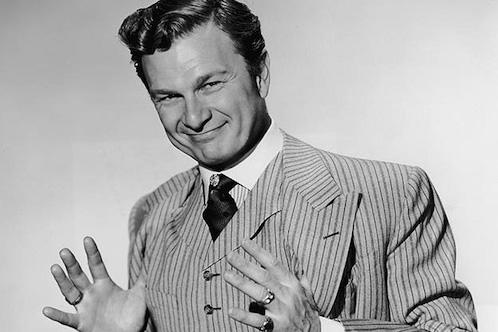"I don't really care how I am remembered as long as I bring happiness and joy to people."
The oldest of five children, Eddie Albert Heimberger was born on April 22, 1906. He grew up in Minneapolis and started working as a paper boy when he was 6. Albert attended school around the same time as World War I, and he was frequently taunted about his German last name. He later dropped it because people in the entertainment industry kept mispronouncing it as "Hamburger."
After graduating from the University of Minnesota with a degree in business, Albert attempted to work as a businessman. However, the stock market crash of 1929 made it overwhelmingly hard for him to make inroads. To sustain a living, Albert worked odd jobs as a trapeze performer, insurance salesman and nightclub singer. After moving to New York in 1933, he began co-hosting a radio show called "The Honeymooners -- Grace and Eddie Show." He moved on to Broadway soon after, then found himself performing in television shows. By 1938, Albert had made it to Hollywood with his debut feature film, "Brother Rat."
Unlike many famous veterans, Albert joined the military after he had found success as an actor. His abilities coincided fortuitously with the needs of the military. Albert toured Mexico as a clown and high-wire artist, but was actually working for Army intelligence to take pictures of U-boats before World War II. He enlisted in the Navy in 1942 and was discharged a short year later so that he could accept an officer position in the Naval Reserve.
During the Battle of Tarawa, Albert earned a Bronze Star with Combat "V." He fought in the first wave of combat that lasted for three days. After most of the shooting was over, he was sent back to the site of the battle to salvage any equipment he could find. Because of coral reefs in the area, Marines couldn't land directly on the beach and had to get off their boats 500 yards from shore.
Enemy combatants started picking them off, and soon the waters were filled with more than 100 wounded and many more dead. Albert disregarded his mission to grab equipment and began pulling Marines to safety. He took 47 in total and oversaw the rescue of 30 more.
Years later, Albert would recollect the heroism displayed by his brothers in arms. In one instance, he found a small group of Marines who were unharmed but lost their weapons when trying to land. Albert offered to take them back to his boat, but they refused and asked to be given something to fight with. He returned later, only to discover that they had fallen under enemy fire.
Albert returned to acting once he left the military. His fame reached greater heights than before the war, and his extensive filmography includes "Escape to Witch Mountain," "Miracle of the White Stallions" and "You Gotta Stay Happy." Albert is perhaps best known for his role in the CBS sitcom "Green Acres" from 1965-71.
Over the course of his career, he was awarded an National Society of Film Critics (NSFC) Award and a Star on the Walk of Fame. Despite his accomplishments in acting, Albert went on record to say that the day he served as a landing craft commander at Tarawa was the accomplishment that meant the most to him. He died in 2005 of pneumonia at the age of 99.
Want to Learn About More Famous Veterans?
Whether you want to learn more about other famous veterans, polish up your resume, find veteran job fairs in your area, or connect with employers looking to hire veterans, Military.com can help. Sign up for a free Military.com membership to have job postings, guides and advice, and more delivered directly to your inbox.











